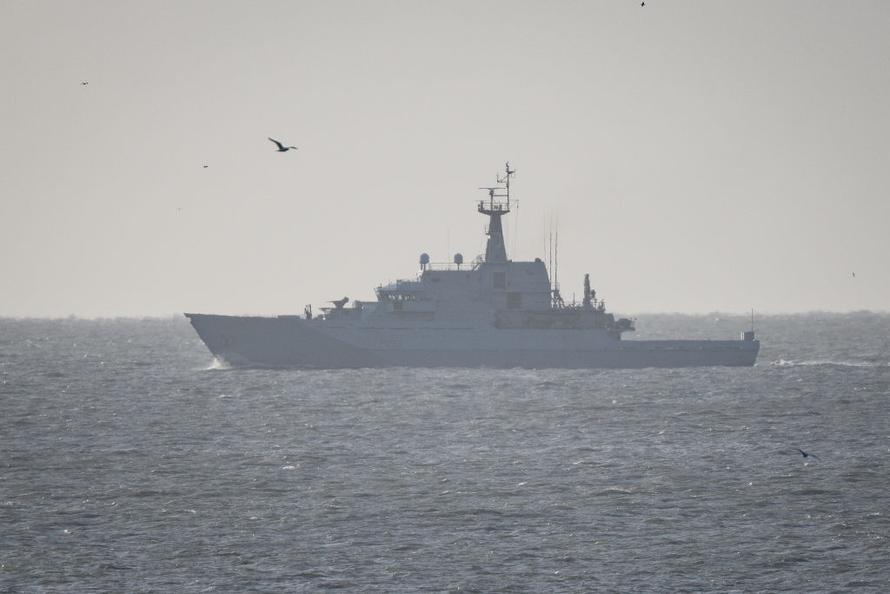Authored by Alasdair Macleod via GoldMoney.com,
After two decades, the euro’s minders look set to drive the Eurozone into deep trouble. December was the last month of the ECB’s monthly purchases of government debt. A softening global economy will increase government deficits unexpectedly. The consequence will be a new cycle of sharply rising bond yields for the weakest Eurozone members, and systemically destabilising losses in the bond portfolios owned by Eurozone banks
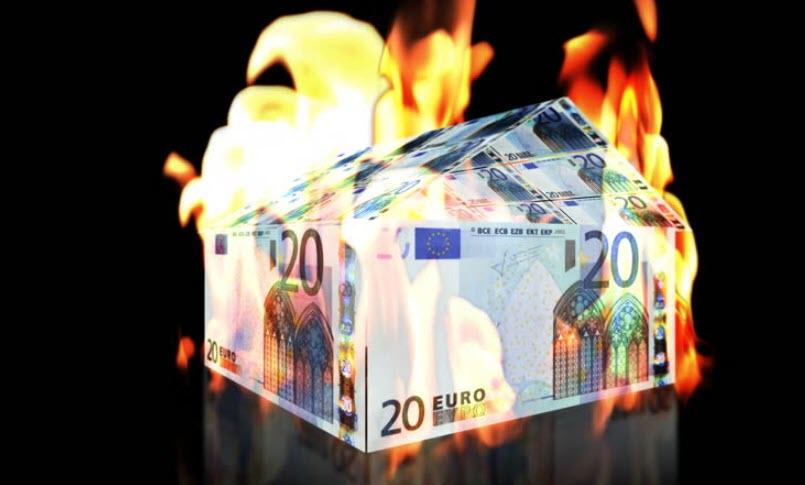
The blame-game
It’s the twentieth anniversary of the euro’s existence, and far from being celebrated it is being blamed for many, if not all of the Eurozone’s ills.
However, the euro cannot be blamed for the monetary and policy failures of the ECB, national central banks and politicians. It is just a fiat currency, like all the others, only with a different provenance. All fiat currencies owe their function as a medium of exchange from the faith its users have in it. But unlike other currencies in their respective jurisdictions, the euro has become a talisman for monetary and economic failures in the European Union.
Recognise that, and we have a chance of understanding why the Eurozone has its troubles and why there are mounting risks of a new Eurozone systemic crisis. These troubles will not be resolved by replacing the euro with one of its founding components, or, indeed, a whole new fiat-money construct. It is here to stay, because it is not in the users’ interest to ditch it.
As is so often the case, the motivation for blaming the euro for some or all the Eurozone’s troubles is to shift responsibility from the real culprits, which are the institutions that created and manage it. This article briefly summarises the key points in the history of the euro project and notes how the mistakes of the past are being repeated without the safety-net of the ECB’s asset purchases.
The birth of the euro
To swap a number of existing currencies for a wholly new currency requires the users to accept that the purchasing powers of the old will be transferred to the new. This was not going to be a certainty, and the greatest reservations would come from the people of Germany. Germans saved, and therefore risked the security of their deposits in a new money and monetary system. They were reassured by the presence of the hard-money men in the Bundesbank, who had a mission to protect the mark’s characteristics against the weaknesses that would almost certainly be transferred into the new euro from more inflationary currencies.
These anxieties were assuaged to a degree by establishing the ECB in Frankfurt, close to the watchful eye of the Bundesbank. The other nations were sold the project as bringing greater monetary stability than offered by their individual currencies and the reduction of cross-border transaction costs. Borrowers in formally inflationary currencies also relished the prospect of lower interest rates.
It was clear at the outset that the new omnibus euro required new disciplines, and it was here that the system failed from the outset. Having sensibly set out the euro’s parameters in the Maastricht Agreement, political considerations then took over. The raison d’être of the euro, so far as the politicians were concerned, was to further the European Project and getting countries into the new Eurozone became more important than compliance with the terms.
The terms had been set in the Maastricht Treaty in February 1992, which was signed by the twelve members of the pre-existing European Community. To qualify, membership of the euro required an inflation rate no more than 1.5% higher than the average rate of the three lowest member states, a fiscal deficit of no more than 3% at the end of the preceding fiscal year, a ratio of gross government debt to GDP of no more than 60%, membership of the exchange rate mechanism for two years without devaluation, and long-term interest rates no more than 2% higher than the inflation rates of the three lowest inflation rates.
This was sensible stuff but was then ignored by the Maastricht signatories. Only Luxembourg fully qualified for membership under the Maastricht terms.
Even the EU’s sheet-anchor, Germany, failed. Her budget deficit in 1996 was 4% of GDP. France’s was managed (manipulated?) down to 4% from 5%. Greece’s budget deficit after some very creative accounting was shown as 8%, and Italy’s must have had a papal blessing, because it miraculously fell from 8% to 4%.
Germany’s government debt to GDP in 1996 embarrassingly just exceeded the 60% criteria level set at Maastricht. Belgium’s stood at 130%, Italy’s at 124%, and Greece’s (reportedly) at 110%. What debt? We see no debt. Of the original Maastricht signatories, only France and the UK squeezed through on this condition.
Despite this fudge, ten of the twelve Maastricht signatories went ahead and adopted the euro in 1999 and as circulating currency in 2002. The UK had dropped out of the EMU in September 1992, and Greece was so obviously non-compliant its entry was delayed by two years.
Until the Lehman crisis, national interest rates had converged towards Germany’s under the aegis of a common monetary policy. The ECB’s interest rate policy was necessarily a compromise. At one end of the spectrum were the low rates previously enjoyed by the economies with solid savings rates. These were Germany, Luxembourg, Finland, the Netherlands and Austria.
At the other end were the bad boys: notably Greece and Italy. In 1992, when Maastricht was signed, Greece’s overnight lending rate was 28%. By 1996, when the Commission released its first convergence report, it had fallen to 12.8%. When Greece joined the euro in 2001, it had fallen to 3.3%. Italy’s 3-month interbank rate fell from 13% to 9%, and then to 3.4% at these same times.
The ECB’s task was not helped by the careless assumption that savings rates were a drag on consumption. Capital which had originated as credit expansion instead of genuine savings migrated to nations with higher bond yields, first as a trickle but then in increasing quantities as confidence grew that monetary unification under the euro was there to stay. This being the case, it was believed by investors that investing in Italian and Spanish debt was as safe as investing in German and French debt for less return.
The capital flows into these savings-starved nations boosted their asset prices and GDPs. And the more that credit-originated capital flooded into them, the more asset prices and GDPs benefited. This meant that based on improving statistics, the euro was deemed a great success, lifting the Mediterranean nations out of poverty. The reality was that capital flows ended up in malinvestments and government profligacy. No one thought to complain, and Germany’s sound-money men were silenced by those who pointed to Germany’s growing exports to the high-spending euro members.
In this manner, the ECB’s monetary policy gave impetus to localised credit cycles, particularly for the PIGS and Ireland.[iv]Asset booms were turned into bubbles, which finally burst in the wake of the Lehman crisis. The EU’s monetary system was then saddled with trillions of euros of debt that could never be repaid, and the PIGS suddenly found further finance from the markets was unavailable. Interest rate convergence was reversing. Furthermore, the whole Eurozone banking system was threatened with collapse, which always happens when extreme credit bubbles go pop.
Member states had no realistic option but to bail out their banks, and public sector borrowing rocketed, funded by the EU, the ECB and the IMF. The crisis in Greece was worsened when in late 2009 the government was forced to admit it had lied about its budget deficit for years, and finally admitted to a far higher current-year deficit than previously disclosed. Greece’s 2009 budget deficit was doubled from about 7.5% to 15.1%. The rise in bond yields meant Greece was unable to continue to fund her deficits and roll over existing debt and capital fled to supposedly safer Eurozone jurisdictions.
Greece’s corrupt government was replaced in January 2015 by a far-left government, elected because it promised the voters it would reject onerous bailout terms. It turned out that as far as the ECB and Brussels were concerned, Greece’s problems were to stay in Greece, and any hopes that its troubles would be shared with the Eurozone were dashed.
In effect, it appeared that the expense of rescuing a very small member of the Eurozone risked destabilising the others. Yanis Varoufakis, the Greek finance minister, said the reason for the EU’s uncompromising approach was it was protecting the German banks from losses. A sensible compromise to help a member state struggling with debt had been dismissed out of hand.
Dealing with future financial crises
Commentators also argued that the EU and ECB had pursued a hard line on Greece in order to persuade other member states, who were clearly in similar difficulties, not to rely upon help from the centre. This argument makes sense. But worryingly, the Greek episode also exposed the lack of any mechanism to deal with the unexpected. There had been evidence of this at the outset, when the Maastricht conditions were enacted. Lawmakers made no allowance for economic and monetary cycles in 1992, but by 1999’s joining-date there had been three destabilising crises: Russian debt, the LTCM hedge fund crisis, and the Asian financial crisis. These combined to suppress global GDP growth and undermine assumptions about the predictability of national statistics. Dealing with future crises was obviously going to be a problem, and internal ones later arrived on cue, with Ireland, Cyprus, Spain and Portugal. Then there was and still is Italy.
Italy’s finances have many similarities with those of pre-crisis Greece, fuelled by the suppression of borrowing costs until the music stopped in the wake of Lehman. Despite voter rebellions at successive general elections, Italy’s problems are yet to descend into a Greek-style crisis, but that is the direction of travel. And Italy is far more serious than Greece because of its sheer size.
Furthermore, the era of resolving funding problems in government finances by central banks simply printing more money has ended, and global base money worldwide is contracting. Monetary expansion was how the ECB kept bond prices up and deferred unresolved problems. From this month there will be no more asset purchases, so borrowing costs for Eurozone governments are sure to rise from extremely low interest rates.
The more one considers the outlook for the Eurozone, the riskier it appears. Until it ceased in December, about €2,500bn has been invested in government bonds by the ECB. In effect, the ECB has engineered a second period of rate convergence, this time almost exclusively for Eurozone governments, while ignoring commercial interests. The lesson from the first period is it will be followed by a destructive period of rate divergence when the ECB’s steps out of the market, which it now has. Commercial banks have also been supporting their national governments despite artificially low yields, in the knowledge the ECB was underwriting bond prices.
Now that the ECB’s support for bond markets has ceased, either governments collectively stop running budget deficits, or they will have to be funded by other means. They are almost certainly not going to reduce their collective demand for more funds as the Eurozone slips into recession and rates rise against them.
Commercial banks will have to come to terms with the new reality. Having seen euro-bond yields converge then diverge in the first phase of the euro’s life, we are now seeing them diverge again. And as they diverge yet more, confidence that the Euro-system and the politicians at the centre have control of events will quickly erode, as they did last time.
In this context, the Eurozone’s track record of non-adaptability to changing market conditions is worrying. It leaves the prices of longer-term debt somewhat adrift, lacking natural buyers without a sharp steepening of yield curves. A buyers’ strike is beginning to look best-case, which brings us to the greatest risk of all, the pressure on bank credit to contract as banks attempt to reduce their exposure to falling government bond prices in order to preserve their capital.
Eurozone banks simply cannot afford to ride out the effect of falling prices on their core capital bases. The European Banking Commission and other regulators have introduced rules that make it impossible. Assuming a developing funding crisis begins to drive up bond yields, we can be sure that Eurozone banks will find it increasingly difficult to maintain their margins over minimum Tier 1 and Tier 2 capital requirements, as well as capital conservation buffers, countercyclical capital buffers and global systemically important institutions buffers.
There is therefore a growing probability that the withdrawal of the ECB as a buyer of government debt will bring forward the next Eurozone banking crisis, and it has the potential to escalate rapidly. Not only has the money-bubble through the ECB’s asset purchases gone, but there is a growing risk of contraction in the quantity of bank credit available for government bonds at a time when Italy, Spain, France and other smaller states will most need to issue new debt.
The removal of national currencies in 1999 reduced the status of Eurozone states to entities that can become bankrupt in every practical sense, even if not legally. And without the ECB financing them, they will rapidly become insolvent. Taking the Eurozone as a whole, government deficits last year needed a relatively modest €70bn or so increase in bond issuance. Assuming no deterioration in government finances, a similar level of funding could perhaps be achieved by the ECB keeping its deposit rate at minus 0.4% and relying on interest rate arbitrage plus coupon flows to create buyers willing to subscribe for very short-term government debt.
It allows no room for slippage. The signs are that the global economy is slowing, and the widening spreads on commercial loans confirms the process of central bank base money contraction is beginning to undermine business activity world-wide. At this time of the credit cycle the process of continuing debt expansion always falls entirely on the shoulders of governments and their central banks.
The emerging signs of a credit shock that will engulf public finances are everywhere. The Eurozone appears to be at the greatest systemic risk. The only way these dangers can be averted in the Eurozone is for the ECB to reinstate its asset purchase programmes to rig bond markets again. But having just stopped them, the ECB will need very good reasons to start them again. As usual, the order is crisis first QE second.
Following the last credit crisis, governments took over the banks’ liabilities through bail-outs. Since then, bail-in legislation has been enacted in all Eurozone member states. But if they try bail-ins to save just a few banks, they will likely collapse the whole system, because nervous bank bond holders and large depositors will flee the whole Eurozone banking system, rather than risk being forced to accept worthless bank equity.
Equally, the governments of Italy, Greece, Spain, France and others cannot afford the bail-out route, because they will be unable to fund them, and for a second time lifeboats will have to be launched by the EU, ECB and IMF. Only this time, the amounts will be far larger. It was funding failing Spanish banks that took Spain’s debt to GDP ratio from 35.6% in 2007 to 97% today. Just imagine where it goes to on the next credit crisis, and just imagine the demands on the Italians with their debt-to-GDP ratio already at 130%.
The Eurozone is now perilously on the edge of a financial and systemic abyss. The euro itself is not at fault. The institutions behind it failed to understand that converging interest rates in its first decade would lead to debilitating malinvestments, and that interest rate convergence would be followed by destructive divergence. National governments did not understand the full consequences of no longer being able to print their national currencies.
Don’t blame the euro. It is the victim of abuse by politicians who see it as a stepping-stone towards their grand objectives, and a hapless ECB, forced into increasingly destructive monetary policies. We must hope that the rest of the world is not destabilised by contagion from the Eurozone’s failure.

via RSS http://bit.ly/2AFCvW1 Tyler Durden

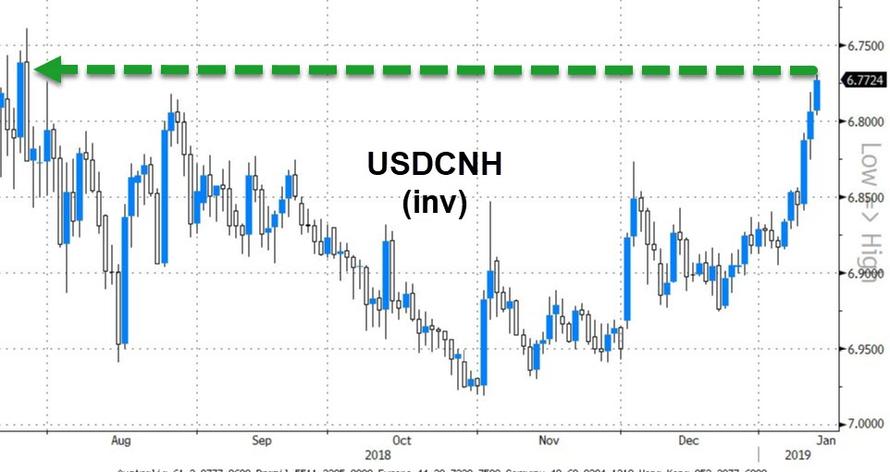
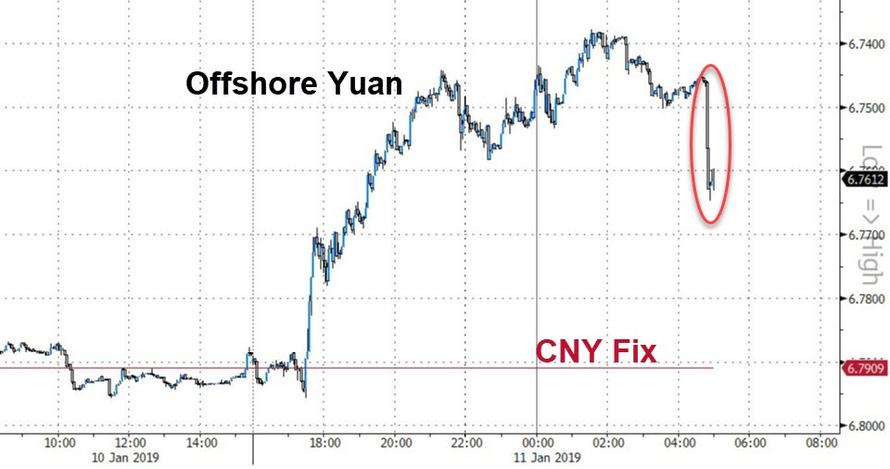
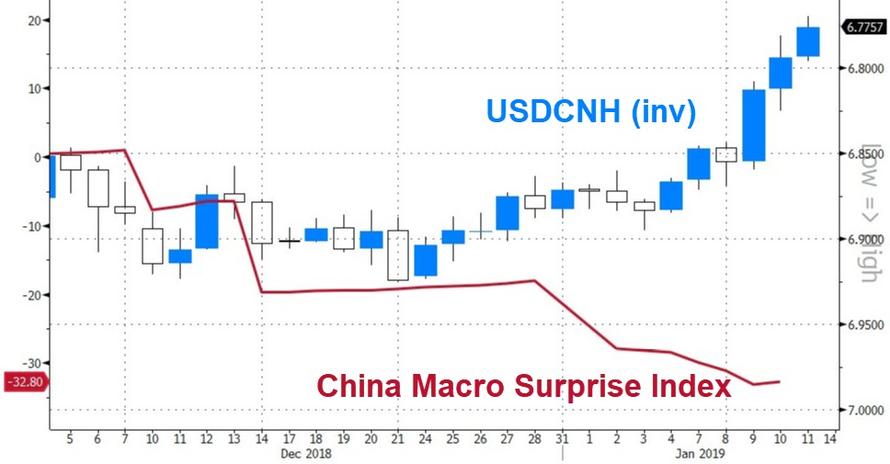
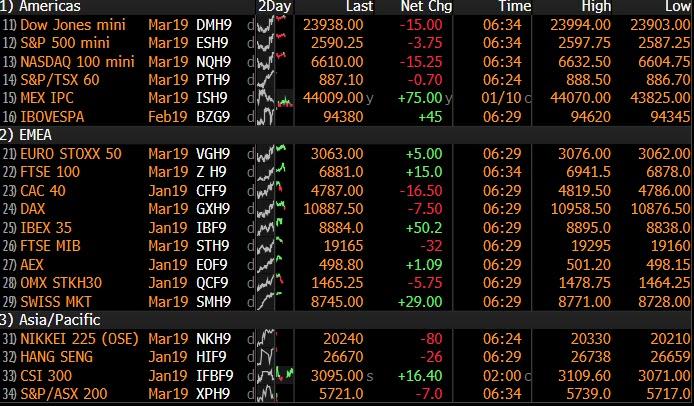
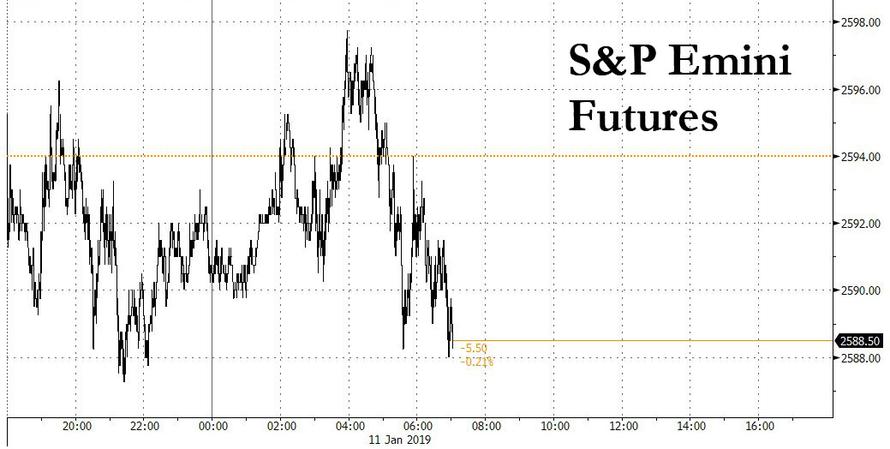
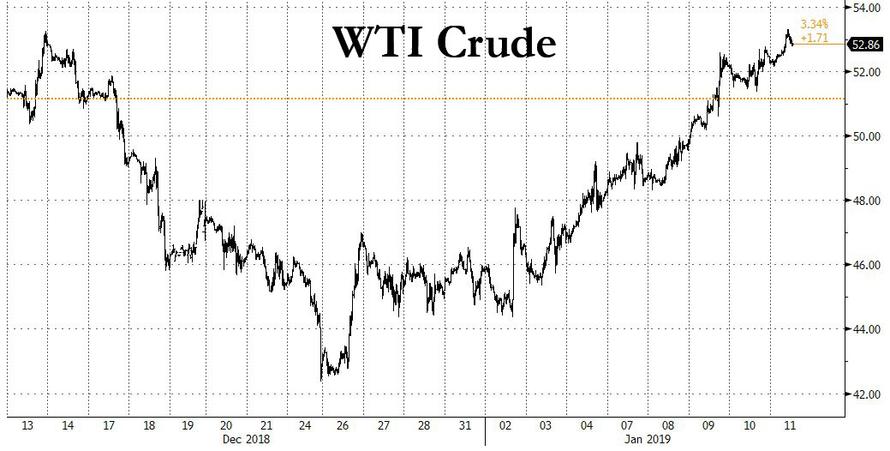
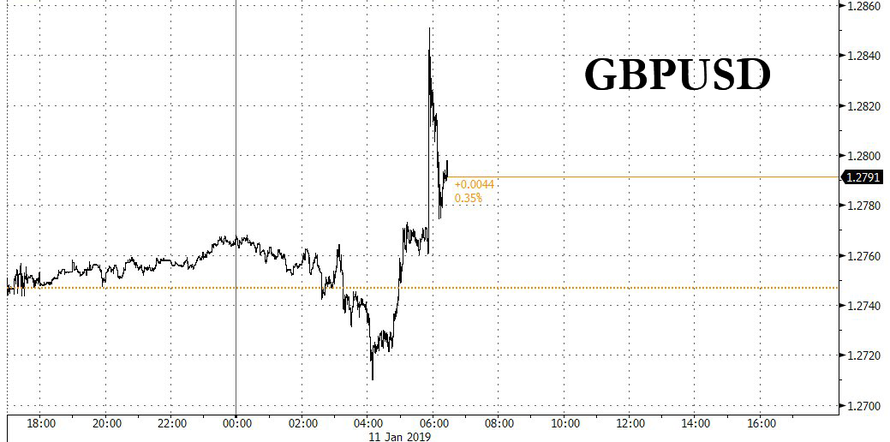

 A new California law requires law enforcement officers to record the age, gender, sexual orientation, and race of anyone they stop. The catch? They can’t
A new California law requires law enforcement officers to record the age, gender, sexual orientation, and race of anyone they stop. The catch? They can’t 